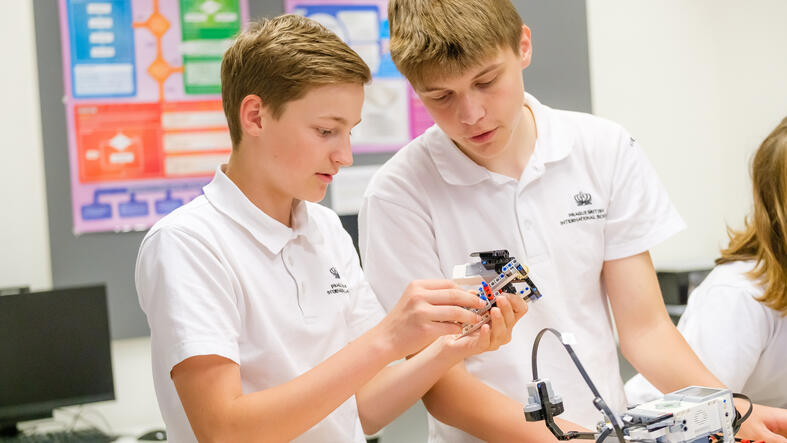Learning at PBIS happens everywhere, every single day. Your child will do what they love, challenge themselves, and experience the thrill of new discoveries.
Our exclusive collaborations with The Juilliard School and MIT nurture our students’ creativity in art, music, dance, drama, and STEAM. We’ll encourage your child to stand up for what they believe in and influence change, too. One way they’ll do this is through our partnership with UNICEF, which challenges them to make a difference on the international stage.
Every year, our students take part in large-scale sports, music, and STEAM festivals, as well as Model United Nations events. Local, national, and international trips and camps, including to Tanzania, Switzerland and New York, open our students’ eyes to the wonders of and issues facing our world. And more than 80 extra-curricular clubs – from performing arts, sports and robotics to social impact, debating and journalism – mean there really is an activity for everyone.



























